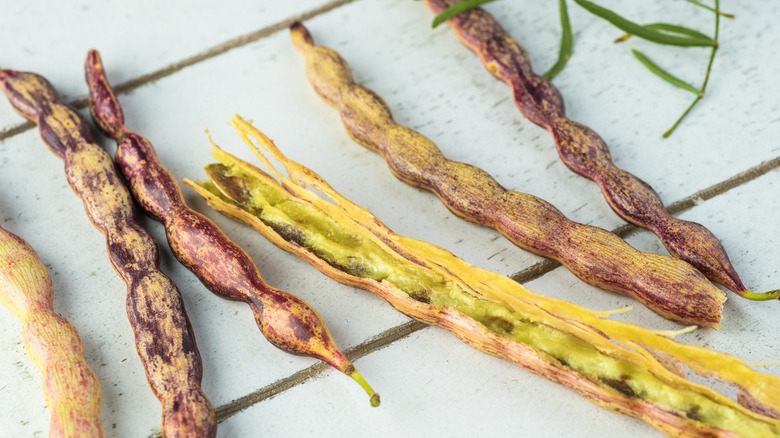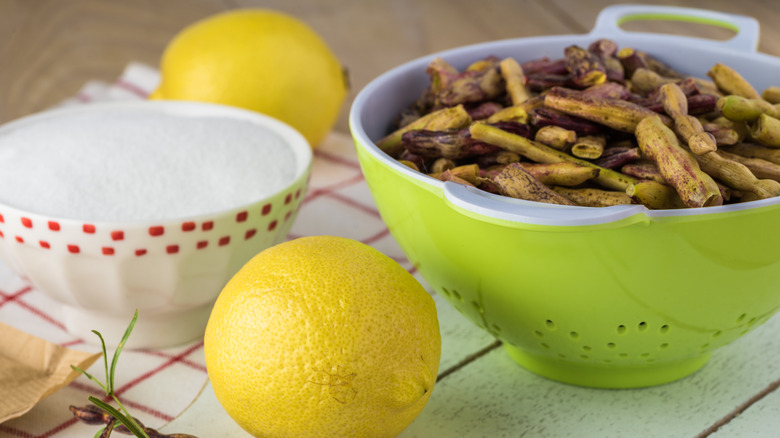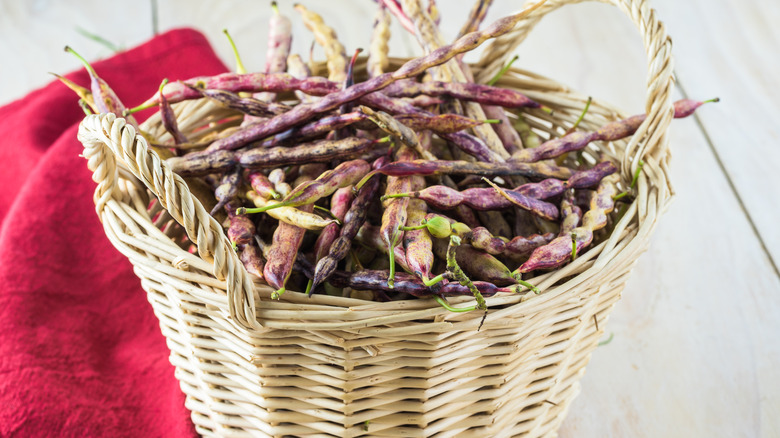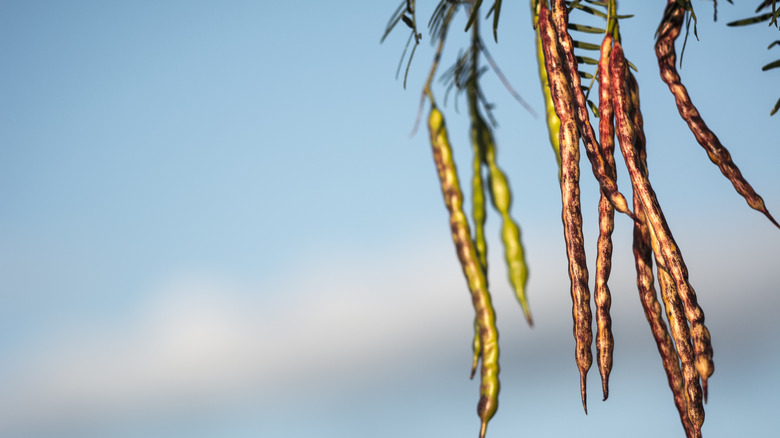What Are Mesquite Beans And How Do You Cook Them
Americans love holidays commemorating almost anything — from rodents predicting the weather (Groundhog Day) to practical jokes and pranks (April Fools Day). But perhaps one of the oddest customs comes on January 6, when we celebrate National Bean Day. So why do we honor beans on that day? It is the anniversary of the death of Gregor Mendel — the famous scientist whose experiments with bean and pea plants led to the basis of modern genetics (via Holidays Calendar). How we actually celebrate this holiday is, of course, a personal choice. But it almost certainly involves eating beans.
According to The Advocate, beans were first cultivated in South America about 5,000 years ago. They've continued to be a primary food product in Mexico and many Latin American countries, and it is estimated that there are approximately 40,000 species of beans in the world today.
The types of beans most of us are familiar with include pinto, kidney, black, and soybeans, but we know very little about the more exotic mesquite beans and how we use them.
The history of mesquite beans
Mesquite beans are the pods on the mesquite tree, found in Mexico and the southwestern parts of the United States (via NPR). The branches of the trees, according to NPR, are spiked with large thorns and contain the desert-colored mesquite beans "that rattle when they're ready to pick." If you eat one of the beans right from the tree, it tastes fairly sweet. According to The Spruce Eats, many years ago, flour made from ground mesquite beans was a mainstay for Native Americans, and although rarely found in grocery stores, it is becoming more available now because it's a gluten-free option.
The director of education for the Lipan Apache Tribe of Texas, Dr. Hermelinda Walking Woman, describes to NPR how abundant the supply was when she grew up: "You'd go out to the mesquite trees and you'd have these giant clusters of mesquite pods ... It's been a big part of our history, of our tribe, that we would gather this and use it for food."
How to use mesquite beans
Unlike other bean varieties, mesquite beans are commonly milled into flour. This flour can be added to vegetables and meats, even chili, for added sweetness, per The Spruce Eats. But the more popular use is in baked products like bread, muffins, and cakes, which it is said to bring a nutty, molasses-like flavor. Yummly offers a pancake recipe made with mesquite flour, rice flour, and potato flour that gives consumers a gluten-free option for their breakfasts. According to The Frayed Apron, mesquite beans can also make for a delicious caffeine-free alternative to coffee, with a sweet taste and the comforting smell of cookies.
There are some other unusual but interesting uses of mesquite beans: In one restaurant formerly open in Texas, according to NPR, they used mesquite-buttered brioche for their fried chicken sandwiches and served it with mesquite maple syrup; Another store reportedly makes a mesquite-flavored ice cream with crumbled mesquite cookies; And, some brewers have tapped several mesquite beers.
Health benefits of mesquite beans
While most beans are healthy — high in fiber and protein, per NPR — scientists have studied whether mesquite beans and the flour milled from them might have an added benefit: According to the National Center for Biotechnology Information, via Cappadona Ranch, until the mid-1900s, diabetes was rare among indigenous people, which was attributed to diets that kept their blood sugar levels low. However, when mesquite bean flour began being replaced by processed foods and specifically white flour, the cases of Type 2 diabetes rose significantly.
Mesquite beans have even been hailed as a superfood as they act as an adaptogen that helps your body counter stress along with being packed with essential vitamins (per Earth Eco). It can even be used as an alternative flour to make delicious and healthy cookies.
For many reasons, it's time to add to your current bean arsenal — enjoy the rich history and promising health benefits of mesquite beans.



